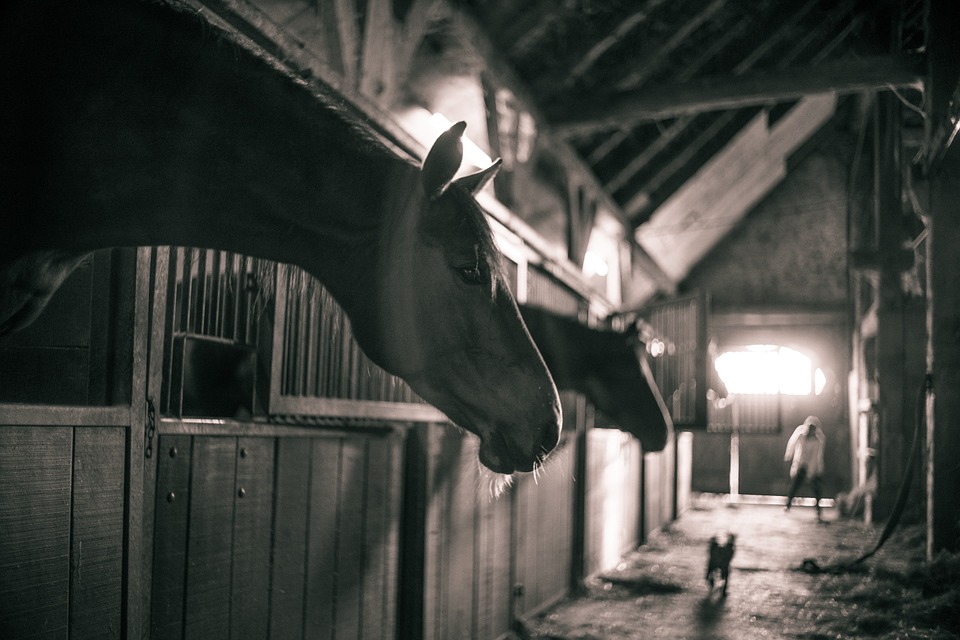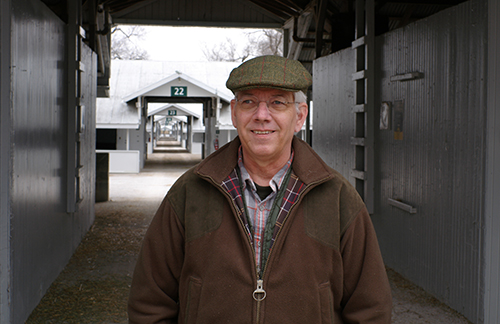
by David Nash, DVM
Horse owners worldwide were alarmed when reports of a new airborne Equine Influenza outbreak caused the British Horseracing Authority to suspend Thoroughbred racing in England on February 7, 2019.
Equine Influenza is a highly contagious disease that is spread between coughing infected horses, contaminated buckets, feed tubs, brushes, tack, etc. Symptoms include fever, coughing, and nasal discharge. Equine Influenza is caused by strains of the Influenza A virus, which is endemic in horses. The virus replicates inside of equine respiratory epithelial cells resulting in damage to tracheal and bronchial epithelial cells and respiratory cilia resulting in the respiratory symptoms seen in horses.
More alarming was the fact that previously vaccinated horses were not protected from the strain of Equine Influenza virus responsible for this outbreak. More than 2,000 horses were tested, 170 racing yards were placed under quarantine, biosecurity practices were now mandatory, and racing was allowed to resume under strict new guidelines issued by the British Horseracing Authority six days later. This disruption of racing cost millions of dollars in lost revenue, great cost to horse owners, and sent shivers down the spine of all horse owners wondering if they were next. But was this outbreak preventable?
Unfortunately, the disruption of equestrian sporting events due to infectious disease outbreaks is becoming all too common. In 2001, Thoroughbred racing was shut down for months due to a Foot-and-Mouth disease outbreak in Great Britain which caused the Cheltenham Festival to be cancelled as well as 121 other race meets. This disease outbreak began in pigs (horses are also susceptible) in February 2001 and resulted in over 6 million cows and sheep being euthanized across British farms until it was contained in October 2001 at cost of $6 billion.
The Cutting Horse National Western Championship held in Ogden, Utah, saw several horses diagnosed with Equine Herpesvirus Type 1 which later spread to 10 other Western states between April 28-May 1, 2011 resulting in 90 confirmed cases and 13 horses that died or were euthanized. This disease outbreak was covered widely by national news networks and cost millions of dollars before it was contained.
In 2016, the Fair Grounds Race Course located in New Orleans, Louisiana experienced a large Equine Herpesvirus Type 1 disease outbreak which began with a single neurological case on Christmas Day. This outbreak lead to 200 horses quarantined, 2 dead horses, and a major disruption of their winter race meet costing millions of dollars in lost revenue to the racetrack owner Churchill Downs Inc. and veterinary costs incurred by horse owners.
On February 12, 2019, a horse show facility located in Wilmington, Ohio is currently under quarantine with 3 horses found to have tested positive for Equine Influenza. Three other Ohio horse facilities are also quarantined because horses that attended a horse show at the Wilmington, Ohio facility were also found to have tested positive for Equine Influenza.
Very concerning is the increasing number of horses in North America found to have contracted Equine Infectious Anemia (EIA) as demonstrated by a positive Coggins Test. There is no cure for EIA and infected horses must be quarantined for life or euthanized. A barn at Gulfstream Park Race Course located in south Florida is currently under quarantine due to a horse that tested positive on a Coggins test.
Equine infectious disease outbreaks are preventable in many cases and when they do occur they can be contained if horse owners take individual actions. All horses need to be properly immunized and accurate records maintained and readily available for inspection at all times. Horse owners need to be trained how to create and utilize a real biosecurity plan. Horses are not part of the food chain and hence are not screened for emerging or infectious disease in the same way that food animals are screened.
The United States Department of Agriculture and the State Department of Agriculture are primarily responsible for protecting the food supply. Horses are considered companion animals and many equine infectious diseases are not reportable unless they cross state borders.
We must find the funds to screen horses for emerging infectious diseases utilizing advanced scientific instruments not currently used in veterinary medicine. West Nile Virus was first identified using cutting edge Unbiased Gene Sequencing at a human research lab- not a veterinary diagnostic lab. Unbiased Next-Generation Sequencing works by identifying specific building blocks of life (RNA/DNA) so that known pathogens, newly mutated pathogens, or never before discovered diseases can be identified. Once an emerging disease has been characterized using this technique a rapid, accurate, and inexpensive PCR (Polymerase Chain Reaction) test can be made.
Lastly, we need to find the financial resources to support a rapid response team, equipped with state-of-the-art equipment to assist horse owners, state and federal authorizes to manage equine infectious disease outbreaks and identify the disease cause quickly and affordably.
About the Author

David Nash, DVM is a veterinarian based in Kentucky who was a member of a scientific team that developed a point-of-care portable, handheld, battery operated infectious disease diagnostic device funded by a National Science Foundation Grant. He is currently is working with state, county emergency managers and first responder agencies as well as Federal agencies to provide emergency response to regional, state, and national disasters utilizing methods developed by the United States Department of Homeland Security.
Find more interesting articles in our section on Health & Education.

































